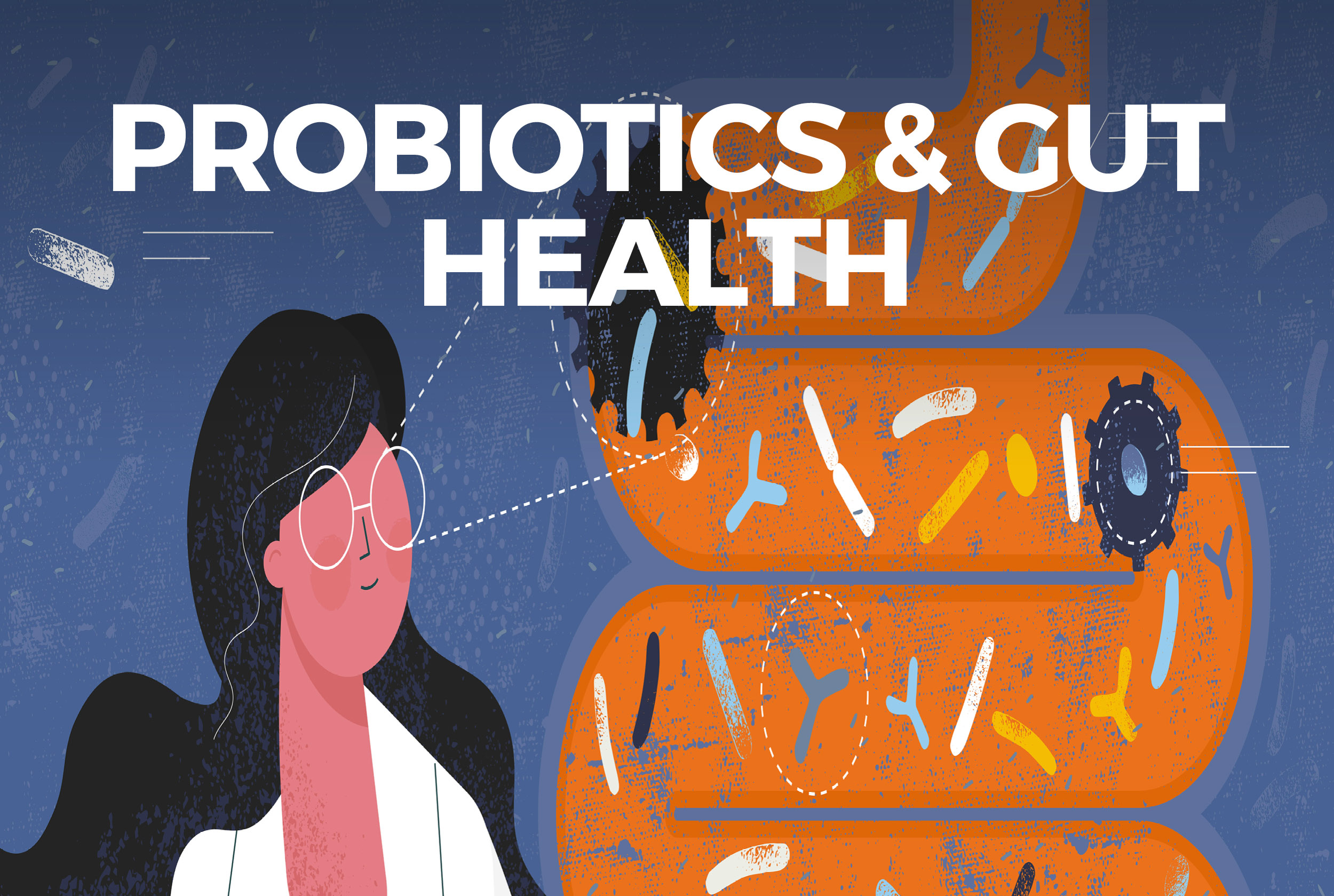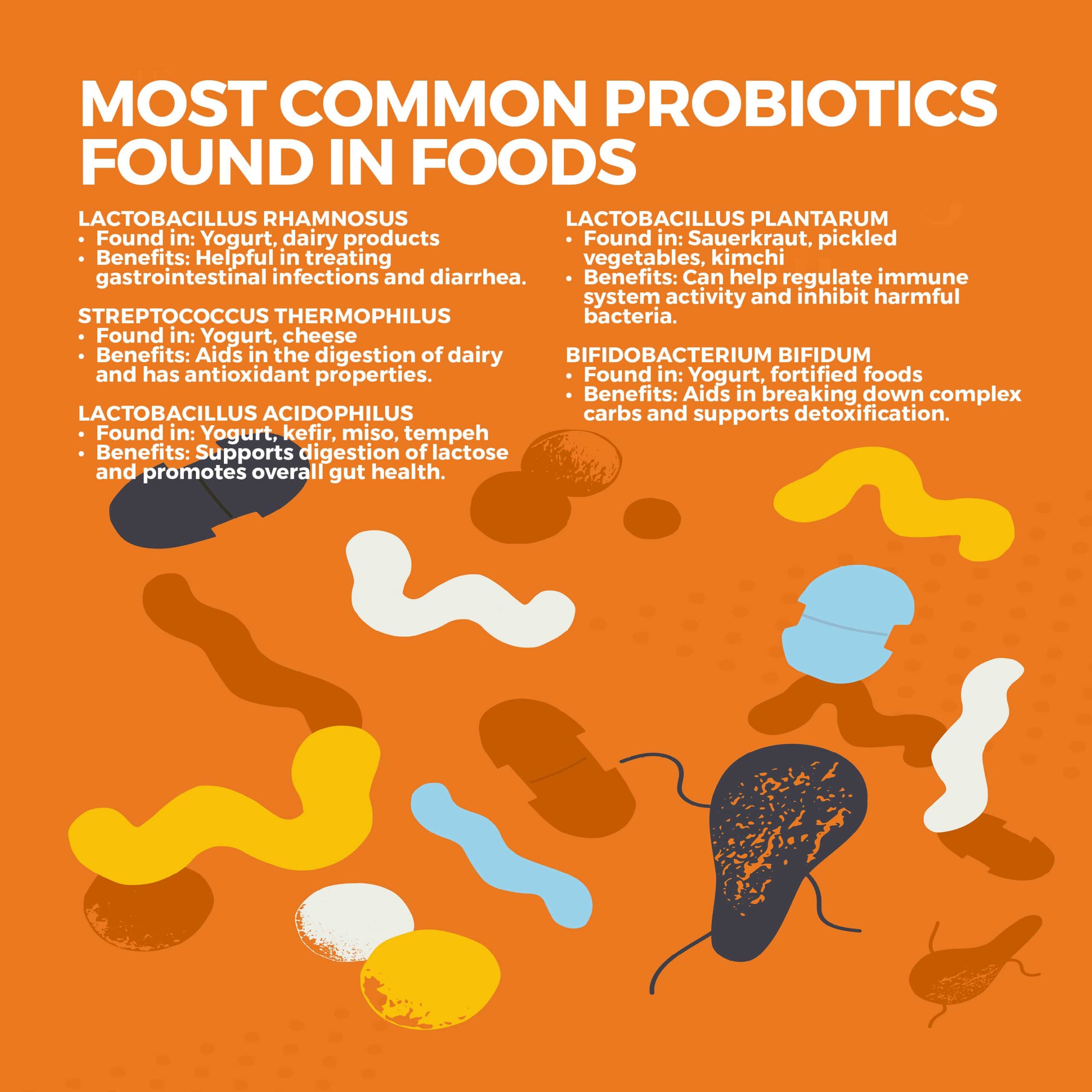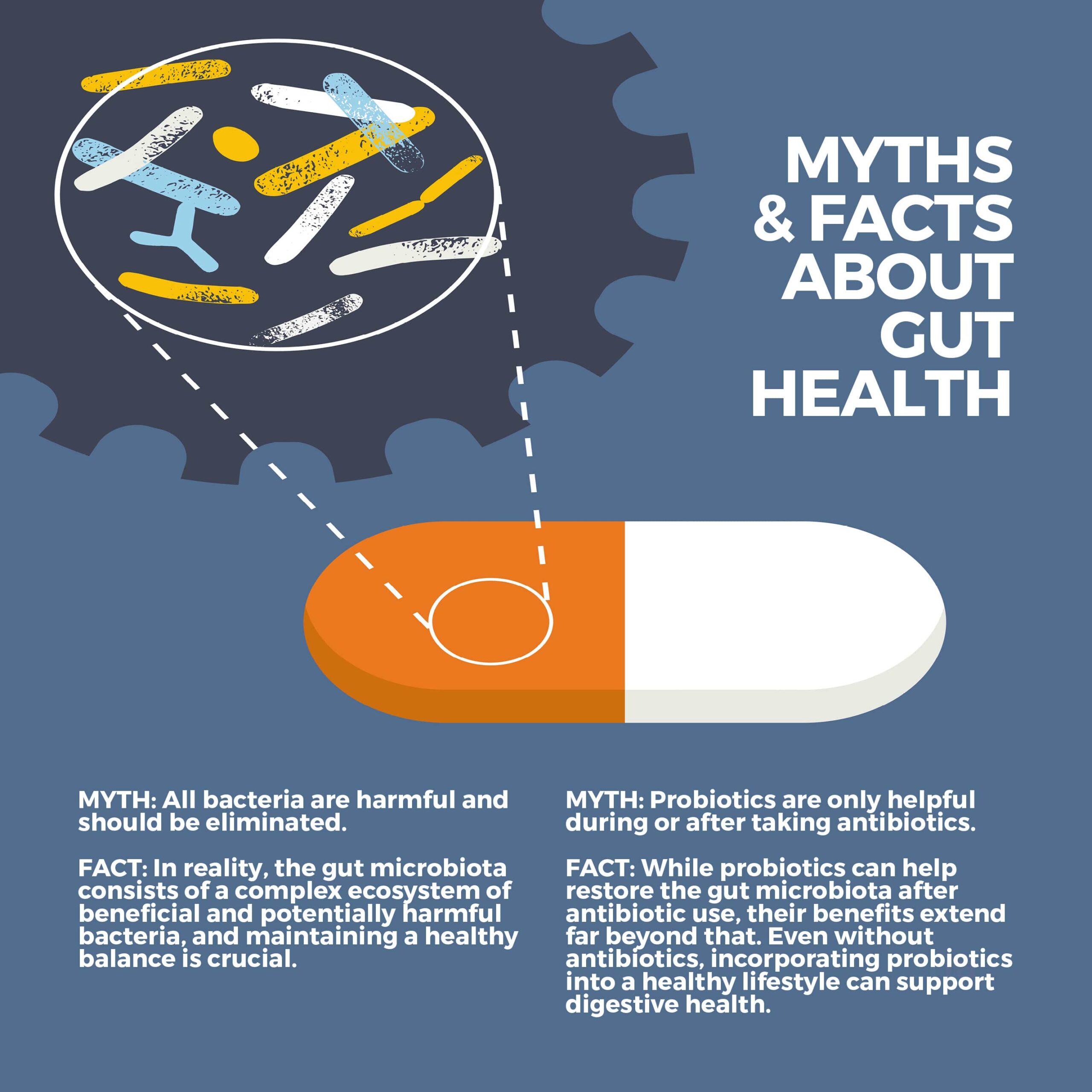
Probiotics and Gut Health: The Role of Bacteria in Digestive Wellness
Maintaining a healthy gut is crucial for your overall well-being and digestive wellness. In recent years, probiotics have gained significant attention for their potential benefits in supporting gut health. Probiotics are live microorganisms that, when taken in the right amounts, can provide many health benefits, particularly for the digestive system. Let’s explore the essential role of probiotics in promoting gut health, the different types of probiotics and their sources, how they work in the gut, and their potential benefits.
Understanding Gut Health
Gut health refers to the overall well-being of your digestive system, including things such as digestion, absorption, nutrient use, and immune function. A healthy gut is characterized by a balanced microbiome – the community of microorganisms living in the gastrointestinal tract. When the microbiome is in harmony, it supports proper digestion, helps maintain a strong immune system, and contributes to overall health and well-being. Imbalances in the microbiome can lead to digestive issues and other health problems.
The relationship between diet, probiotics, and gut health is multifaceted. What we eat plays a significant role in shaping our gut microbiome. The microbiome influences how we digest and absorb nutrients. A diet high in processed foods, sugars, and unhealthy fats can disrupt the balance of the gut flora, potentially leading to digestive problems. Conversely, a fiber-rich diet, whole grains, and diverse vegetables can foster a thriving microbiome.
The Role of Probiotics in Digestive Health
Probiotics play a crucial role in promoting and maintaining a healthy gut. These beneficial bacteria work by colonizing the gastrointestinal tract and interacting with the existing microbiome. They help restore microbial balance, inhibit the growth of harmful pathogens, and promote the development of beneficial bacteria. Probiotics also enhance the gut barrier function, improve nutrient absorption, and support immune function within the gut. Doing so contributes to improved digestion, reduced inflammation, and overall gut health.
Different Types of Probiotics and Their Sources
Probiotics come in various strains, each with unique characteristics and potential benefits. The most common strains of probiotics include Lactobacillus, Bifidobacterium, and Saccharomyces, among others. These strains can be found naturally in certain fermented foods such as yogurt, kefir, sauerkraut, and kimchi. Probiotic supplements are also available, providing a convenient way to introduce beneficial bacteria into the system. Choose high-quality products that contain live and active cultures to help ensure their effectiveness.

How Probiotics Work in the Gut
Probiotics exert their beneficial effects on the gut in various ways. They compete with harmful bacteria for resources and space, inhibiting their growth. Probiotics also produce beneficial compounds, such as short-chain fatty acids, that promote a healthy gut environment. They enhance the gut barrier function by strengthening the intestinal lining and preventing the entry of harmful substances into the bloodstream. Probiotics also modulate immune responses and reduce inflammation, which improves gut health.
Benefits of Probiotics for Digestive Health
Probiotics have been extensively studied for their positive effects on digestive health. They can help ease symptoms of gastrointestinal conditions such as irritable bowel syndrome (IBS), inflammatory bowel disease (IBD), and antibiotic-associated diarrhea. Probiotics may also improve digestion, nutrient absorption, and immune function within the gut.
Potential Side Effects of Probiotics
While probiotics offer many benefits, it’s important to note that they can cause minor side effects in some individuals, especially when first introduced into the diet. These side effects may include gas, bloating, and changes in bowel movements. Most side effects are temporary and resolve as the body adjusts. If they persist, it’s a good idea to consult your gastroenterologist.
Dispelling Myths About Gut Health
There are several myths and misconceptions surrounding gut health and probiotics. One common myth is that all bacteria are harmful and should be eliminated. In reality, the gut microbiota consists of a complex ecosystem of beneficial and potentially harmful bacteria, and maintaining a healthy balance is crucial.
Another myth suggests that probiotics are only helpful during or after taking antibiotics. While probiotics can help restore the gut microbiota after antibiotic use, their benefits extend far beyond that. Even without antibiotics, incorporating probiotics into a healthy lifestyle can support digestive health.

Choosing the Right Probiotics for Digestive Health
When selecting probiotics, consider specific health needs and research different strains. Different strains offer distinct benefits, so identifying your health concerns can guide you in choosing the most suitable probiotic strain. Opt for high-quality products that contain live and active cultures. Your gastroenterologist can provide personalized guidance in selecting the right probiotics, considering individual health conditions, medical history, and any medications being taken.
Integrating Probiotics into a Healthy Lifestyle
Besides taking probiotic supplements, incorporating probiotic-rich foods into your diet is a great way to support digestive health. It is important to note that probiotics are not a cure-all, and a holistic approach to gut health is crucial. Maintaining a balanced diet, staying hydrated, managing stress levels, and getting regular exercise are all important factors in promoting optimal gut health.
Here’s a list of some of the most common probiotics and the foods you can find them in:
- Lactobacillus acidophilus
- Found in: Yogurt, kefir, miso, tempeh.
- Benefits: Supports digestion of lactose and promotes overall gut health.
- Lactobacillus rhamnosus
- Found in: Yogurt, dairy products.
- Benefits: Helpful in treating gastrointestinal infections and diarrhea.
- Lactobacillus plantarum
- Found in: Sauerkraut, pickled vegetables, kimchi.
- Benefits: Can help regulate immune system activity and inhibit harmful bacteria.
- Bifidobacterium bifidum
- Found in: Yogurt, fortified foods.
- Benefits: Aids in breaking down complex carbs and supports detoxification.
- Streptococcus thermophilus
- Found in: Yogurt, cheese.
- Benefits: Aids in the digestion of dairy and has antioxidant properties.
Are you looking to boost your gut health? Incorporate these probiotic-rich foods into your diet. Remember to opt for products that mention “live and active cultures” on their labels to ensure you’re getting the probiotic benefits.
Contact Us
Probiotics play a vital role in supporting digestive wellness by promoting a healthy balance of bacteria in the gut. They have been shown to ease symptoms of gastrointestinal conditions, improve digestion, enhance nutrient absorption, and strengthen the gut barrier. You can support your gut health and overall well-being by incorporating probiotics into a healthy lifestyle.
Contact us today! The team of professionals at GastroMD looks forward to working with you. We are one of the leading gastroenterology practices in the Tampa Bay area. We perform many diagnostic procedures using state-of-the-art equipment in a friendly, comfortable, and inviting atmosphere where patient care is always a top priority!



